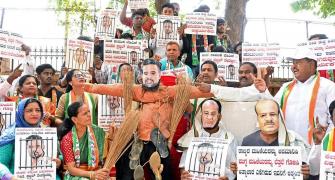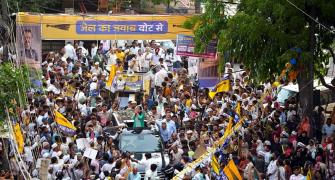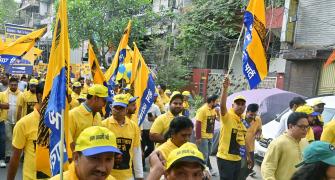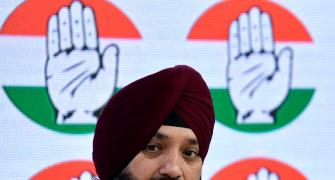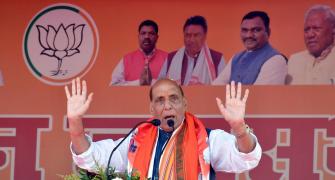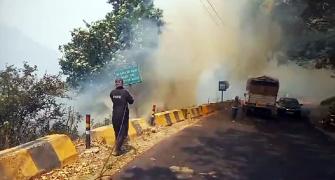The road ahead for Varun Gandhi looks tough, legally. Although the son of late Sanjay Gandhi cannot be prevented from contesting elections, he will have to explore several legal options before he gets out of the legal tangle that he is in, especially after sections of both the Indian Penal Code and National Security Act were slapped against him.
So what options does Varun have before him? Rediff.com spoke to legal experts and found out their opinion.
According to Vikram Hegde, senior advocate, the law does not bar Varun from contesting elections. The Supreme Court has very clearly stated that any person is presumed innocent until proven guilty. Moreover, a person cannot be barred from contesting the elections unless he is sentenced for more than two years.
Charges on Varun and his legal options
The first charge is under Section 153 of the Indian Penal Code. This section deals with wantonly giving provocation with intention to cause riot. If there is rioting caused as a result of the speech, then the accused could be sentenced to a term of one year or slapped with a fine. In case there is no riot caused then the accused person could face a jail term of 6 months.
Although Section 153 may not cause a problem for Varun Gandhi's political future, he could be in trouble if found guilty for Section 307 of the IPC, which deals with murder. If proven guilty under this section, Varun could face life imprisonment.
Hegde says that Varun could apply for bail under both these cases. Bail is a matter of right and if his counsel is able to convince the courts, then bail could be granted provided the BJP leader furnishes a bail bond and surety of the like sum.
Hegde also points to a lacuna in the police case where slapping of Section 307 is concerned. He says that this section was slapped after he had surrendered and hence he cannot be held directly responsible for an event after his surrender. The police case regarding this aspect is slightly weak, he says.
Varun has also been charged under the National Security Act. The Uttar Pradesh District Magistrate has booked him under Section 3(2) of the NSA. Section 3(2) states that if the state government may impose the Act to prevent a person from acting in any manner prejudicial to the security of the state or from acting in any manner prejudicial to the maintenance of Public order.
Legal experts say that a person can be kept in custody for 90 days if booked under these provisions.
Varun sure does have a legal recourse. In the S R Bommai case, the Supreme Court had ruled that introduction of emergency powers under the Constitution can be questioned in the court. The same reasoning should be applied to the NSA.
Legal experts state that none of these provisions can stop Varun from contesting the elections. He has to be tried in all these cases and only if the court finds him guilty and sentences him to a term, which is more than 2 years, can he be barred from contesting the elections.

